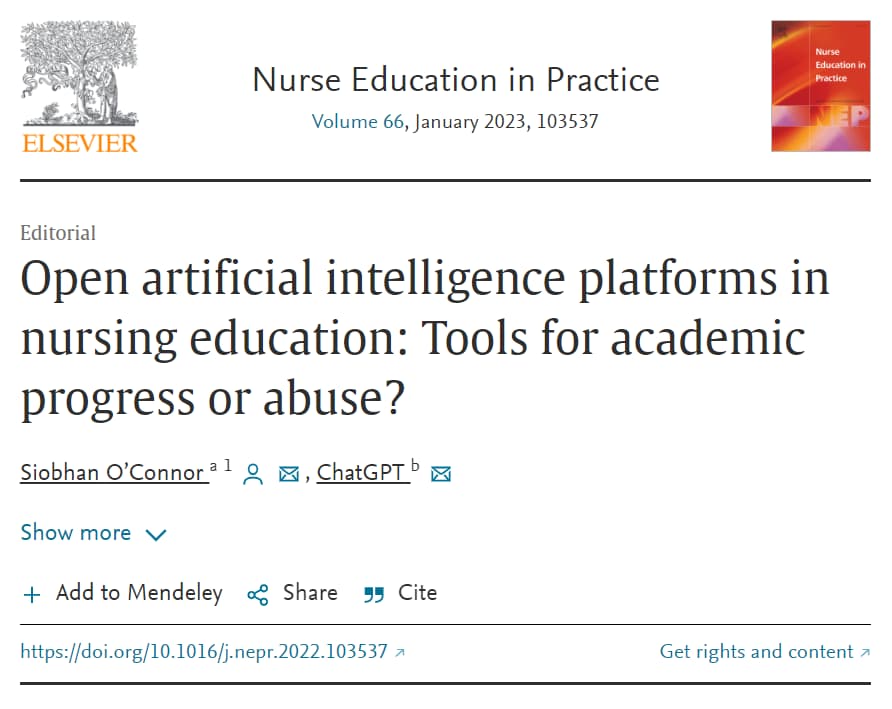Elsevier, a prominent publisher of scientific and technical information, has achieved a significant milestone by including ChatGPT as an author in a journal.
This pioneering advancement signals the start of a new chapter in scientific publishing, where artificial intelligence (AI) is gaining greater significance as a critical tool for research and communication in the scientific community.

The publication, titled “Open Artificial Intelligence Platforms In Nursing Education: Tools For Academic Progress Or Abuse,” was co-authored by a group of researchers from the University of Tokyo and ChatGPT.
The integration of ChatGPT as a journal author is a significant leap forward for AI in the domain of scientific publishing. It showcases the potential for AI to help the research process and contribute to the body of scientific knowledge, opening new avenues for collaboration between humans and machines.
Furthermore, incorporating ChatGPT as a co-author has far-reaching consequences for scientific communication.
Traditionally, human authors compose scientific articles with dense, technical language that is often challenging for non-experts to comprehend. By enlisting ChatGPT as a co-author, scientific articles have the potential to become more accessible, engaging, and understandable for a wider audience.
There are potential challenges and limitations to consider as well. For instance, some experts have expressed concerns about the transparency and interpretability of AI-generated language and the possibility of bias or inaccuracies.
Despite this, the inclusion of ChatGPT as a journal author signifies a significant stride in the evolution of scientific publishing and the expanding role of AI within it.
Elsevier’s decision to include ChatGPT as a journal author is a testament to the swiftly changing landscape of scientific publishing as novel technologies and approaches are implemented to enhance the quality, accessibility, and influence of scientific research.
It is thrilling to consider what the future has in store for AI in scientific publishing and how ChatGPT and other language models will continue to push the limits of what is achievable.
Related Stories:
